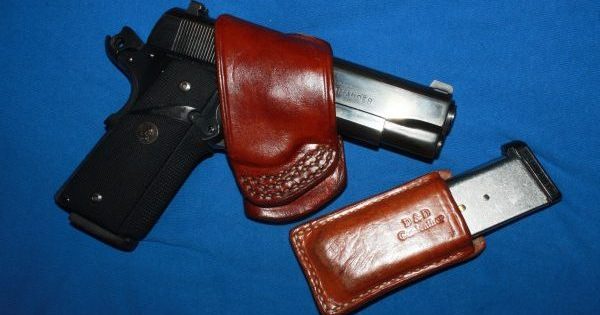
Buried in a three-page memorandum to California law enforcement agencies from Attorney General Rob Bonta, who claims in a news release he “reaffirmed his support for commonsense gun laws in response to an opinion issued today by the U.S. Supreme Court,” is the notification to issuing authorities they must still require proof from carry permit applicants of “good moral character.”
The full text of Bonta’s Legal Alert to state issuing agencies may be read here. It is the fourth paragraph on the second page of this memo that should raise eyebrows. Midway through the paragraph, Bonta tells law enforcement, “Moreover, because the Court’s decision in Bruen does not affect the other statutory requirements governing public-carry licenses, issuing authorities must still require proof that (1) “the applicant is of good moral character,” (2) the applicant is a resident of the relevant county or city (or has their principal place of business or employment in that county or city), and (3) the applicant has completed a course of training.” The memo also says “Issuing authorities may also still require psychological testing.”
Who defines “good moral character?” Actually, the Cornell Law School Legal Information Institute does.
“Good moral character and reputation,” the definition explains, “means the possession of honesty and truthfulness, trustworthiness and reliability, and a professional commitment to the legal process and the administration of justice, as well as the condition of being regarded as possessing such qualities.”
In the next paragraph of his alert, Bonta says, “Accordingly, in assessing whether an applicant has established ‘good moral character,’ issuing authorities should recognize that Bruen does not eliminate the duty or authority of local officials to protect he communities that they know best by ensuring that licenses are only issued to individuals who—by virtue of their character and temperament—can be trusted to abide by the law and otherwise ensure the safety of themselves and others.”
But is this requirement now being used in California to dance around the high court’s 6-3 ruling striking down the “good cause” requirement in New York State’s concealed carry permit law? That might be inviting another legal action, since the Second Amendment Foundation has already issued a stern warning about such tactics.
“We’re putting them on notice we’ll be watching for any such misconduct and we won’t be shy about taking legal action,” SAF founder and Executive Vice President Alan Gottlieb said in a prepared statement directed at officials in any state, not just California.
As reported Monday, California and New Jersey both have statutes similar to the one in New York that the Supreme Court just struck down, and the attorneys general in both states quickly issued bulletins to issuing agencies they can no longer require “good cause” from permit applicants.
RELATED:
SCOTUS Fallout: NJ, Cal. Drop ‘Good Cause’ Requirement